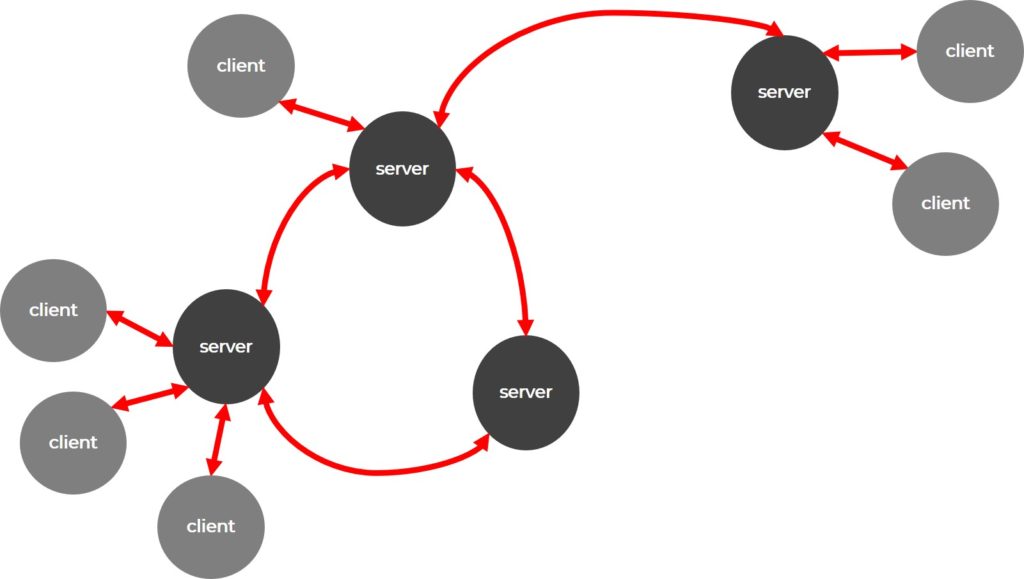
The Extensible Messaging and Presence Protocol (XMPP) is an open technology for real-time interaction. XMPP is over ten years old with lots of development. For open-source, this means stable, widely deployed, severely tested, Internet-scale technology, with dozens of interoperable codebases, tens of thousands of used services, and millions of end-users. These are some of its advantages:
• XMPP is secure. It provides built-in support for channel encryption and strong authentication, inherent resistance to many forms of malware. Other more advanced features are also in the works (OMEMO protocol is an adaptation of the Signal Protocol, created by Open Whisper Systems).
• XMPP is decentralized. XMPP technologies are deployed in a decentralized client-server architecture with an unlimited number of servers. Any person or organization can run their XMPP server and connect it to the rest of the network using standard Internet infrastructure such as the Domain Name System (DNS), and certificates available through the XMPP Standards Foundation (XSF) to enable secure XMPP traffic.
• XMPP is extensible. Because XMPP is at its core a technology for rapidly delivering XML from one place to another, it has been used for a wide range of applications beyond instant messaging, including gaming, social networking, Voice over IP(VoIP), video conferencing, real-time collaboration, alerts and notifications, data syndication, geolocation, intelligent workflows, and machine-to-machine communications.
• XMPP is scalable. The “push” model of information transfer used in XMPP address the scaling problems associated with traditional HTTP-based polling approaches.
• XMPP is an open standard. A large number of software products and a communications network are all good, but the best thing is a vibrant and active community of technologists, developers, open-source projects, commercial software companies, service providers, and end-users.